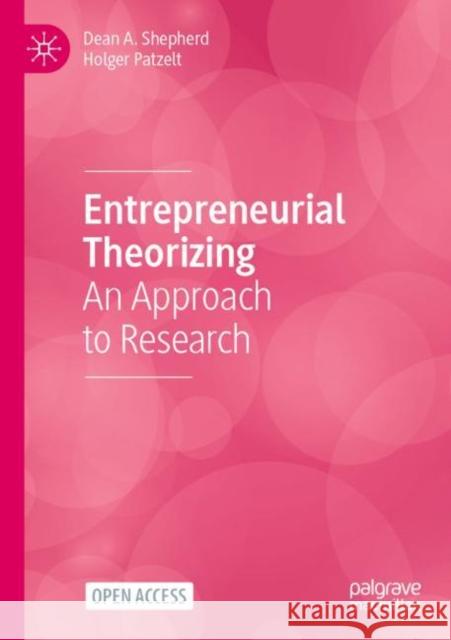Entrepreneurial Theorizing: An Approach to Research » książka
Entrepreneurial Theorizing: An Approach to Research
ISBN-13: 9783031240478 / Angielski / Miękka / 2023 / 210 str.
Entrepreneurial Theorizing: An Approach to Research
ISBN-13: 9783031240478 / Angielski / Miękka / 2023 / 210 str.
(netto: 153,32 VAT: 5%)
Najniższa cena z 30 dni: 154,18
ok. 22 dni roboczych.
Darmowa dostawa!
This open access book investigates an entrepreneurial approach to building new theories. It provides a rich understanding of how specific tools facilitate aspects of the theorizing process and offers a clearer big picture of the process of building important new entrepreneurship theories. The authors show that anthropomorphizing has been a critically important tool for developing influential entrepreneurship theories. They reveal how scholars build on their rich and highly accessible understanding of humans (i.e., the self and others) to make guesses and sense of entrepreneurial anomalies, articulate theoretical mechanisms to build more robust entrepreneurship theories, and create plausible stories that facilitate sensegiving. Further, they offer a framework that guides entrepreneurship scholars in finding a balance to maximize their contributions and guides reviewers and editors in managing the revise-and-resubmit process to advance the entrepreneurship field. Finally, they present lean scholarship as an approach to developing a portfolio of high-quality, high-impact papers. Lean scholarship starts with an entrepreneurial mindset and involves creating a minimum viable paper, exploring its validity, adding a plausible paper to one’s portfolio, and managing the portfolio by periodically deciding whether to persevere, pivot, or terminate each paper. This seminal work will appeal to entrepreneurship researchers, both those new to the field as well as seasoned veterans, who want to learn more about the tools that can be used to generate new knowledge about new ventures and other entrepreneurship topics.
This open access book investigates an entrepreneurial approach to building new theories. It provides a rich understanding of how specific tools facilitate aspects of the theorizing process and offers a clearer big picture of the process of building important new entrepreneurship theories. The authors show that anthropomorphizing has been a critically important tool for developing influential entrepreneurship theories. They reveal how scholars build on their rich and highly accessible understanding of humans (i.e., the self and others) to make guesses and sense of entrepreneurial anomalies, articulate theoretical mechanisms to build more robust entrepreneurship theories, and create plausible stories that facilitate sensegiving. Further, they offer a framework that guides entrepreneurship scholars in finding a balance to maximize their contributions and guides reviewers and editors in managing the revise-and-resubmit process to advance the entrepreneurship field. Finally, they present lean scholarship as an approach to developing a portfolio of high-quality, high-impact papers. Lean scholarship starts with an entrepreneurial mindset and involves creating a minimum viable paper, exploring its validity, adding a plausible paper to one’s portfolio, and managing the portfolio by periodically deciding whether to persevere, pivot, or terminate each paper. This seminal work will appeal to entrepreneurship researchers, both those new to the field as well as seasoned veterans, who want to learn more about the tools that can be used to generate new knowledge about new ventures and other entrepreneurship topics.











